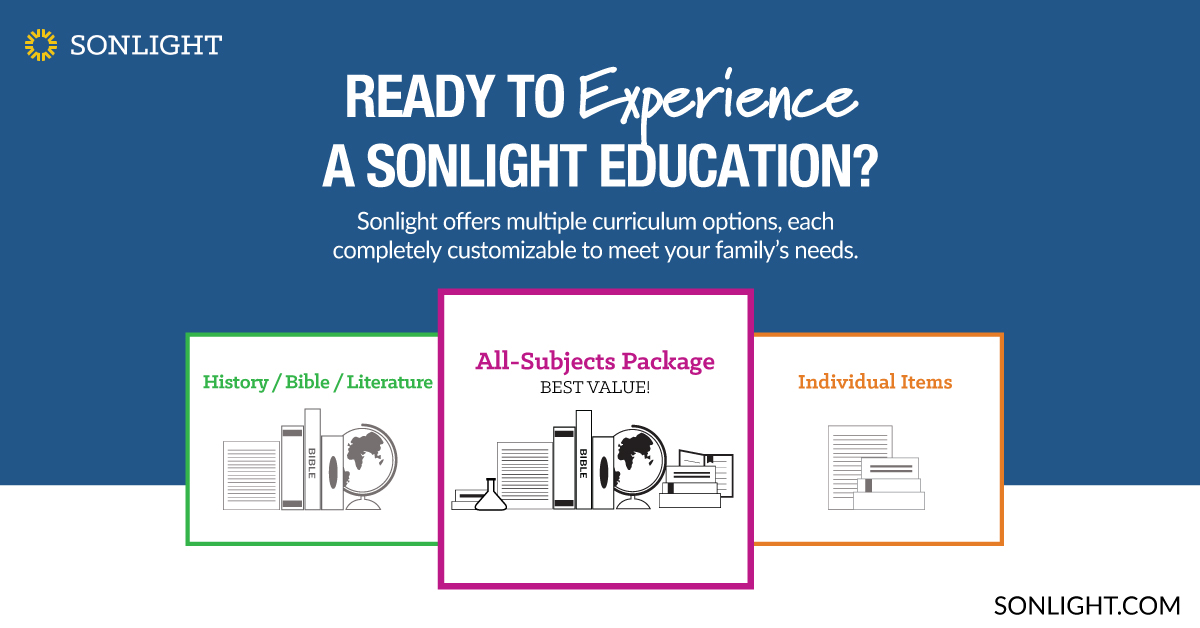
My four children all had very different experiences in regards to their early education. Things simply weren’t equal for them.
- Amy went to Christian school through fourth grade.
- Luke went to Christian school only for kindergarten.
- Jonelle and Justin started homeschooling in kindergarten or preschool.
Amy remembers growing up in California, but Justin’s memories all come from after we moved to Colorado. Jonelle usually tagged along with what I taught Luke, and Justin says I never taught him Algebra (though I dispute that claim!).
Public Schools Provide the Same Educational Experience
Public schools can be very focused on moving children along in lockstep with each other. Many teachers lament how much time they have to spend teaching to the test. They have specific goals they need to meet at each grade, regardless of what the individual children in their classroom actually need.
Do you need to give each child the same homeschool experience?
With homeschooling, you don’t have to teach to the test. You can teach to your reality.
No, You Don't Have to Give Each Child the Same Homeschool Experience
If your reality is that your first child has learning challenges and your second child is a math prodigy, then you can tailor their education accordingly. If one teenager loves to write and the other wants to be an engineer, you can take them down different paths. If one child requires structure and schedules, but another is more of a free spirit, you can adjust accordingly. If your reality is that you just adopted a child and your whole family needs time to adjust, you have the freedom to prioritize family time in your schedule.
I appreciate some of the wisdom from Siblings Without Rivalry here. The authors write,
"...children don’t need to be treated equally. They need to be treated uniquely."
Instead of trying to replicate a certain educational experience for each child, it’s far better to see what each child needs and give them that. And instead of trying to make your family look like some ideology’s concept of the perfect family, you can treat your family uniquely as well.
Your Homeschool Experience Will Flex as Life Changes
As your family grows and changes, you can play to your strengths at each stage. When you just had one child, you could give her your undivided attention as you constantly read to her. That was a strength of that stage, and you made the most of it.
When your second was born, he simply didn’t get as much of your undivided attention. But he did get the additional love and attention of an older sibling from day one. And he benefited from parents who had a little less anxiety and a little more wisdom the second time around.
As you and your family grow and change, you can continue to look at your particular family situation and your particular students and make the best decisions you can … even if it means a younger child’s experience is different than an older child’s.
Homeschooling Multiple Children—Uniquely
For example, I advocate combining your children in the couch subjects when you can, and providing individual levels for the table subjects. So when you choose your History / Bible / Literature program, you can combine children within a few years of each other. Same for Science. Gather on the couch and read and learn together with those great books! When it comes to Math, Language Arts and Handwriting, you’ll probably need to sit your kids at the table with their own individual levels.
Combining couch subjects inherently means your children will have different experiences. You might start World History when your first is 8 and your second is 6. Of course, an 8-year-old and 6-year-old will get different things out of the same books and conversations. But both children will be learning age-accessible material in the context of a loving and inquisitive family. And that’s what counts. There is no magic window of time in a child’s development in which they must study any particular period of history.
Or maybe you were more scheduled and rigid when your first-born started kindergarten. By the time your fourth started, you’d relaxed a lot. But both children experienced kindergarten in the context of your loving family. Great!
So let go of any guilt around the idea that everything needs to be equal for your children in order to be good. Your children need you to treat them as unique individuals. And that is one of the greatest strengths of homeschooling. You can treat each student as the unique individual he or she is. You can treat your family as the unique, messy and beautiful entity that it is.
May God bless you as you raise your unique family according to your unique situation!
Ready to design a unique educational plan for your children? Go to SmoothCourse and get started today.








